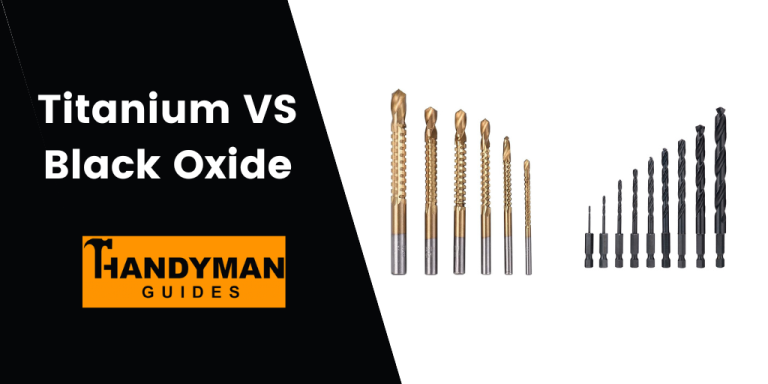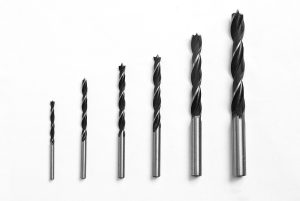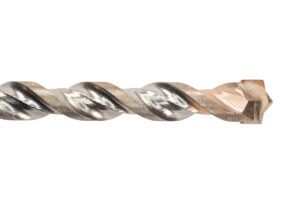What are the drill bits in your toolbox made of? If you’re like most everyday handy-people, you’ve probably got a bunch of bits made of high-speed steel – a great balance of cost versus performance for drilling into concrete, wood, plastic, and many metals. If you’re diving a bit deeper, though, your search through the tool catalogues could have you weighing up between titanium vs black oxide drill bits. But which should you choose for your project?
Table of Contents
Titanium or black oxide? Follow our steps:
To get to the bottom of the black oxide vs titanium drill bits debate, we’re going to present a handy step-by-step process for determining which of these common and yet often misunderstood drill bit types will be best for you:
1. What are your drilling needs?
Let’s start right at the beginning – what are you drilling into? Consider which category you fit into:
- Softer materials including wood, plastic, and non-ferrous metals?
- Harder metals like stainless steel or abrasive materials like concrete and brick.
2. What’s your budget?
Luckily, the kind of drill bits that will slot into your drill at home or for most general work applications are not expensive at all. As with anything, you can spend a lot – but we’re talking a low three-digit number at the most.
If you’re really tight on money, black oxide drill bits are generally a bit cheaper than titanium-coated ones – but not a lot. That’s because pure titanium drill bits would not only be incredibly expensive but not very good either as it’s a very difficult material to machine and work with.
3. Understand the difference
As we’ve just mentioned in Step 2, titanium drill bits aren’t pure titanium – for a multitude of reasons. It’s just a coating of titanium nitride (TiN) that improves hardness, reduces friction, and enhances corrosion resistance.
Similarly, black oxide isn’t a drill bit material in itself either – it’s a surface treatment, barrier, or finish. So while those black oxide drill bits are black, it’s really just a thin chemical treatment layer that you’ll find on many other tools, providing corrosion resistance, reducing friction and even reducing glare as an added bonus.
4. Weigh up performance vs durability
The titanium vs black oxide drill bit debate is also a performance vs durability debate. So if you’re drilling into softer materials and want to keep costs down, budget black oxide bits are extraordinarily affordable. To get a little more performance and longevity out of a harder-working bit, though, spend a little more for titanium-coated ones.
5. Do you have special drilling needs?
Also important to bear in mind that while black oxide drill bits vs titanium is a common dilemma, you might actually need something even better (and more expensive) than both of them for your specialized drilling needs. For instance, if you’re drilling into tiles or masonry or something extremely hard and difficult like ceramics or glass, you’ll need to start researching for carbide-tipped or diamond drill bits instead.
Trust Handyman Guides for all your DIY tips
Are you ready to choose between titanium drill bits vs black oxide? Don’t forget, there are plenty of other things to consider as well as you prepare for your drilling project, including:
- Drill bit type/design
- Size
- Shank size
- Flute design
- Point angle
- Application-specific bits
- Drilling speed & feed
- Quality & brand.
And to address all of that, you’re going to have to dive even deeper right here at Handyman Guides, your helpful resource for all handyman and DIY guides. Better still, why not reach out directly? We’d love to hear from you – and happy drilling!
Founder of HandymanGuides.com and self-proclaimed “Mr. Fix-It”, Mike has countless years of experience building and tinkering with everything under the sun. He works as a local repair guy near Santa Monica, CA and when he’s not spackling drywall, he enjoys spending time with his wife and 2 daughters.








